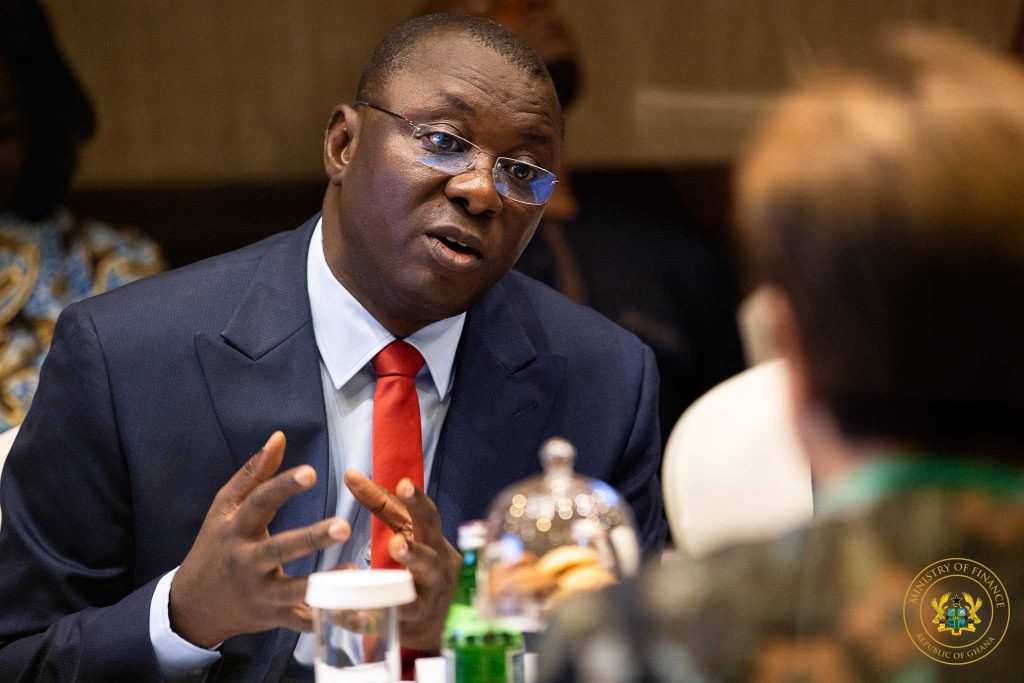The Ministry of Finance (MoF) has announced a collaboration with the Ghana Revenue Authority (GRA) and the UK Foreign, Commonwealth and Development Office (FCDO) to analyze key tax policy issues alongside the Institute for Fiscal Studies (IFS) in the UK.

This partnership aims to enhance long-term analytical capacity to evaluate the impact of tax policies in Ghana.
The initiative is part of a broader effort funded by the FCDO at the Centre for Tax Analysis in Developing Countries (TaxDev). It includes a comprehensive Survey of the Tax System, which provides an updated overview of Ghana’s tax landscape as of January 2024.
This survey is designed as a resource for researchers, policymakers, and the public, updating a previous edition released in 2021.
Key findings from the survey include:
- Ghana’s tax-to-GDP ratio was 13.8% in 2022, still below the government’s target of 18-20% by 2027. Although this figure is nearly 6 percentage points higher than in 2000, it has shown minimal growth since 2017.
- The increase in tax revenues since 2000 has largely stemmed from corporate and personal income taxes, as well as VAT, though growth in revenue from personal income tax and VAT has stagnated recently. These three categories accounted for nearly 70% of total collections in 2022, up from 57% in 2000.
- Tax collections from international trade have become less significant, dropping from 54% of total revenues in 2000 to 33% in 2022.
- Ghana’s performance in tax revenue collections is slightly below the average for lower middle-income countries, ranking 16th out of 28 countries in 2022.
The Ministry of Finance emphasized its commitment to evidence-based and transparent tax policymaking, stating that the Survey of the Tax System is a vital component of this approach.
The ongoing collaboration with the IFS is part of a long-term program that began in 2016 and is expected to continue until 2030.
























































![[FREE FREE MONEY] Predict and Win a Guaranteed GH¢200 From Us EVERY WEEK](https://wordpress.ghanatalksradio.com/wp-content/uploads/2022/02/Predict-and-Win-Final-09-03-2021-218x150.jpg)
![[Predict & Win – 8th/Oct.] WIN A Guaranteed ¢200 From Us This Week](https://wordpress.ghanatalksradio.com/wp-content/uploads/2021/10/maxresdefault-16-218x150.jpg)
![[Predict & Win – 2nd] WIN A Guaranteed ¢200 From Us This Week](https://wordpress.ghanatalksradio.com/wp-content/uploads/2021/09/maxresdefault-50-218x150.jpg)
![[Predict & Win – 25th] WIN A Guaranteed ¢200 From Us This Week](https://wordpress.ghanatalksradio.com/wp-content/uploads/2021/09/maxresdefault-36-218x150.jpg)
![[Predict & Win – 18th] WIN A Guaranteed ¢200 From Us This Week](https://wordpress.ghanatalksradio.com/wp-content/uploads/2021/09/maxresdefault-23-218x150.jpg)









![[National cathedral] See full list of churches that have contributed since 2018](https://wordpress.ghanatalksradio.com/wp-content/uploads/2020/09/Ghana-National-Cathedral-GhanaTalksRadio-100x70.jpg)



